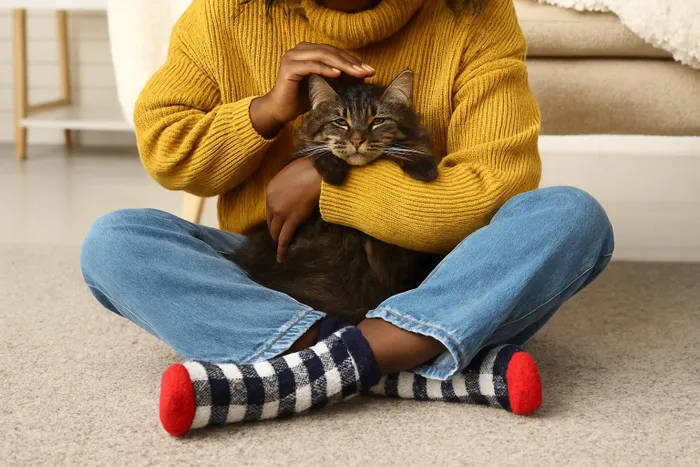How cold weather affects your pets and how you can help

Older dogs and cats, or those with mobility issues, are particularly vulnerable to the cold.
Image: Supplied / Republic PR
As the chilly weather sets in, many pet owners are bracing themselves for the potential health impacts on their furry friends. According to experts, older dogs and cats, or those with mobility issues, are particularly vulnerable to the cold, which can exacerbate joint stiffness, reduced activity levels, and increased discomfort.
Globally, it's estimated that one in five adult dogs suffers from osteoarthritis, while studies suggest that over 60% of cats over the age of six show signs of joint degeneration.
Dr Guy Fyvie, Senior Veterinary Affairs Manager at Hill's Pet Nutrition, emphasises the importance of early detection and proper care in managing mobility issues and improving quality of life.
Watch for these signs that your pet may be struggling:
Dogs:
- Limping or stiffness
- Reluctance to move or climb stairs
- Swollen joints or loss of energy
- Changes in behaviour, such as increased sleeping or grumpiness
Cats:
- Hesitation or refusal to jump
- Difficulty grooming or a matted coat
- Increased hiding or irritability
- Changes in litter box behaviour or mobility
Here are some tips to support your pet in winter:
- Keep them warm: Provide a warm, sheltered sleeping spot with soft blankets or warm bedding.
- Maintain mobility: Engage your pet in short, regular walks or indoor play to keep them active and prevent weight gain.
- Monitor hydration: Ensure your pet's water supply doesn't freeze and encourage regular drinking.
- Feed for joint health: Consider a clinically proven food that supports joint health and comfort.
- Schedule a vet visit: Book a check-up if you notice any signs of pain or slowing down to get expert advice and care.
By following these tips, you can help keep your pet comfortable and healthy during the winter months.